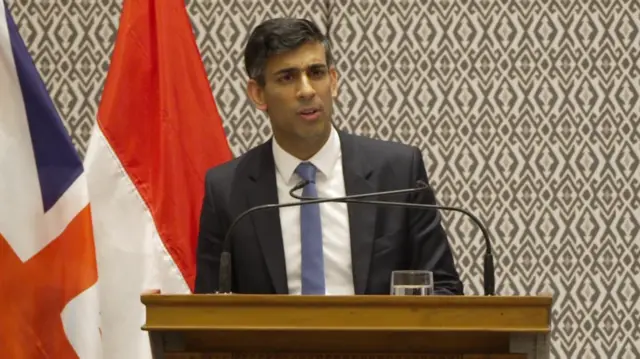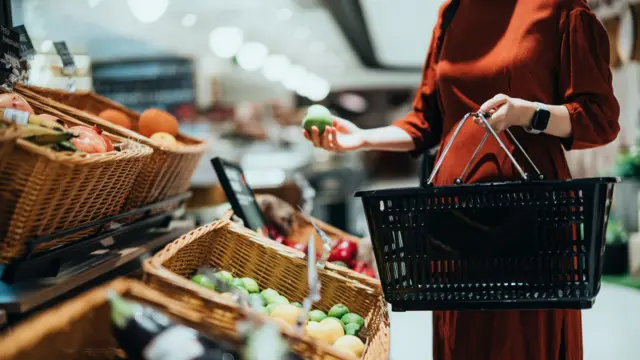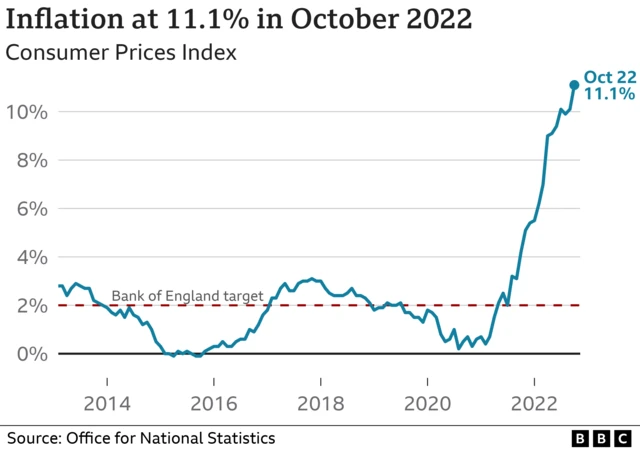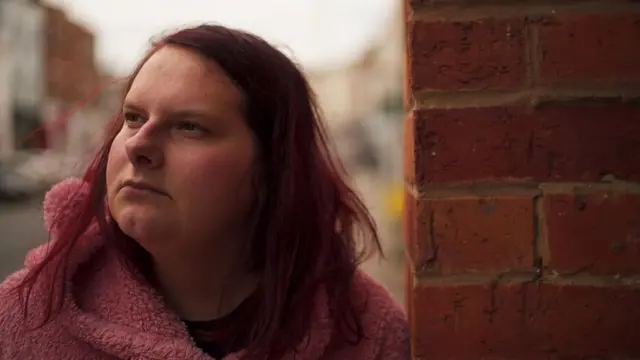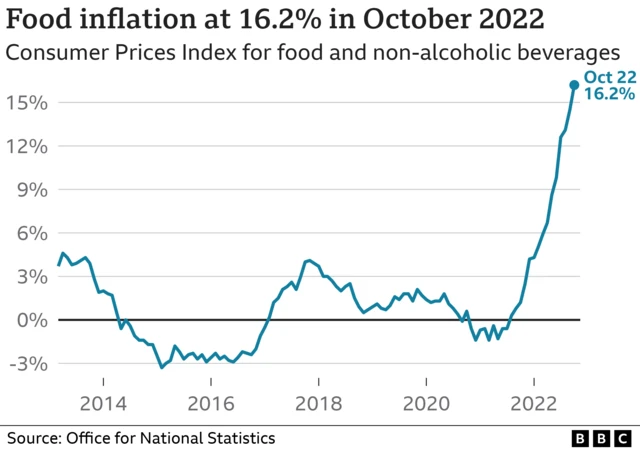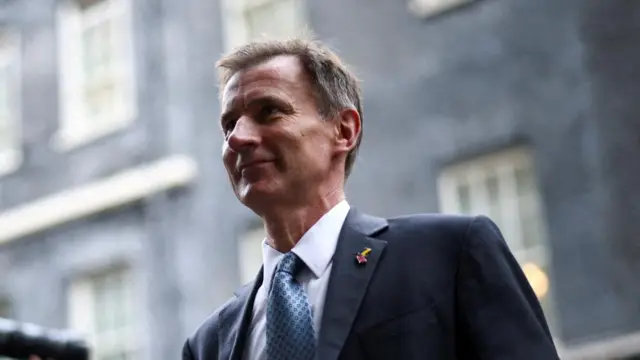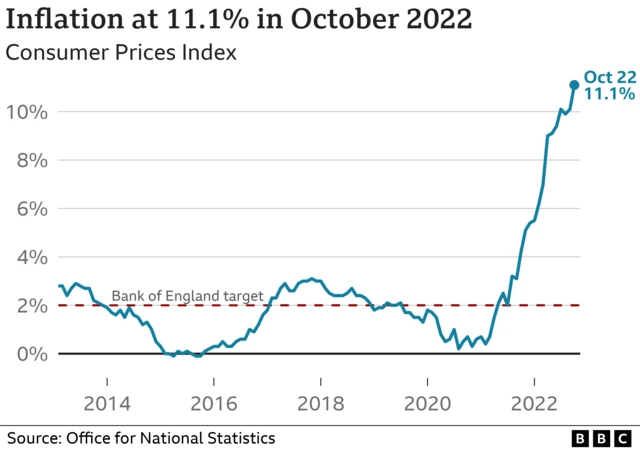Economic stability and confidence at heart of government agenda - Sunakpublished at 08:50 GMT 16 November 2022
The PM goes on to say that his government is pursuing policies to return the UK - and other global economies - to growth, by instilling "economic stability and confidence".
Sunak says the Autumn Statement tomorrow will provide a plan to "get the country on a positive trajectory, put the public finances on the right footing and get debt falling".
And he goes on to say he will build a global platform "to enable the United Kingdom to thrive" and give people in the country "the certainty they need".
